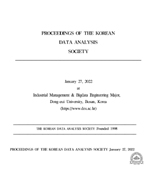Financial Crisis and the Payout Policy under Asymmetric Information
- 한국자료분석학회
- 한국자료분석학회 학술대회자료집
- 2021년 동계학술대회 발표집
-
2022.0167 - 78 (12 pages)
- 6

Pecking order theory predicts that the Information asymmetry makes firms reduce dividends to save internal cash because outside financing is more costly. Simultaneously, firms have an incentive to actively reduce the information gap by paying dividends. Dividend paying firms can build a good reputation which makes the future outside financing cheaper. We contribute to the literature by providing information about the marginal impact or the relative quantitative influence of the pecking order and the signaling incentive, and by showing how they evolve over the crisis period. In general, the pecking order dominates the signaling and the aggregate relation between the asymmetric information and the dividend proves to be negative. Reputation building takes a long time, the benefit of which can not be harvested in the short run. Contrarily, the pecking order driven benefit of reserving cash is immediate. Firms behave differently, in our 100 portfolios, we observe a significant increase in the marginal influence of the pecking order incentive during the crisis period. The decomposition between the crisis and the noncrisis period suggests that the knowledge of the competing two incentives can explain a significant additional portion of corporate payouts on top of the traditional dividend model of Fama and French.
Ⅰ. Introduction
Ⅱ. Literature Review
Ⅲ. Data and Methodology
Ⅳ. Empirical Results
Ⅴ. Conclusion
References
(0)
(0)